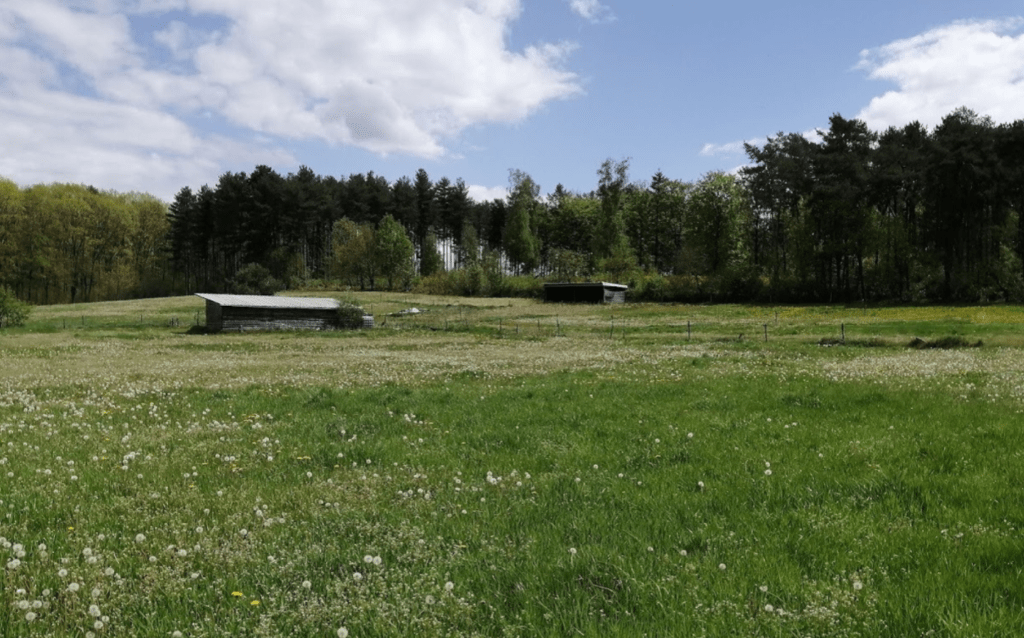The Flemish Land Agency (VLM) has begun demolishing a former pig farm in Flemish Brabant, with the goal of integrating it into two nearby nature reserves.
The VLM took over the farm in 2019 after it was determined that, among other things, its nitrogen emissions exceeded the limit set by the Flemish government.
The excessive nitrogen emissions from the farm prompted a code red, according to the Flemish infocentre for agriculture and horticulture (VILT), as too much nitrogen causes acidification and eutrophication of natural areas.
Eutrophication is the process by which an entire body of water (or parts of it) becomes progressively enriched with minerals and nutrients, generally characterised by excessive plant and algae growth.
“The impact of the farm, which lies between two nature reserves, on nature was too great,” VILT said in a press release.
“In the future, the released land will connect the two nearby nature reserves, creating a larger contiguous nature reserve.”
The former pig farm lies between the nature reserves of Dassenaarde and De Vallei van de Drie Beken, and comprises roughly five hectares.
It will be called ‘Op de Schomme,’ and the pigsties and surrounding area will transform back into nature.
“The whole idea is to give the area back to nature,” said the VLM.
“The site will be fully incorporated into the environment. In this way, the nature of the adjoining reserves will soon be able to continue uninterrupted as a mosaic of species-rich grasslands, open woodland structures and fens.”
Nature restoration work will take place after the demolition of the farm.
“Part of it is the restoration of the original, flat relief and the refinement of the soil,” said Flemish Minister for the Environment Zuhal Demir (N-VA).
“After all, years of fertilisation have created an excessively nutrient-rich situation around the farm, which is detrimental to nature.”
VLM started the first preparatory works for this on Monday, according to VILT.
Other nature restoration works include the filling in and disconnection of a number of drainage ditches, and the restoration of an old pond.
Daar waar landbouwbedrijven door te grote vervuiling veroorzaken, worden nu al stappen ondernomen om zogenaamde ‘rode bedrijven’ vrijwillig aan te kopen. Met het flankerend beleid van @VLMtweet helpen we landbouwers met de transitie. https://t.co/qbJSa7Fh66
— Zuhal Demir (@Zu_Demir) August 6, 2021
“Where agricultural companies cause excessive pollution, steps are already being taken to voluntarily purchase so-called 'red companies,'” Demir tweeted.
“With the accompanying policy of [VLM], we’re helping farmers with the transition.”
Flanders has a total of 60 of these so-called 'red companies,' according to VILT.
These are companies that contribute more than half of the maximum nitrogen precipitation that nature can tolerate, and include 58 livestock farms and 2 manure processors.
Demir has asked all such companies to voluntarily subscribe to the offer for assistance and compensation via the VLM.
“Any excess nitrogen that we can prevent in the meantime, we must seize,” said Demir.
The Flemish government will further consider a definitive approach to nitrogen policy in Flanders in the autumn.

